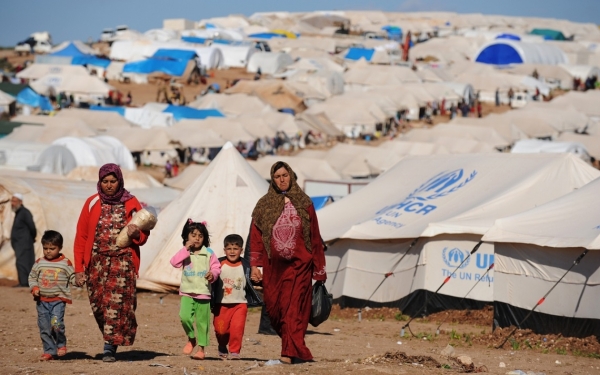The deterioration in socio-economic conditions, together with the consequences of the ongoing conflicts, the effects of the climate crisis and the lack of funding for humanitarian assistance, aggravates the context of food and social insecurity in many countries of the world. "A toxic mix of crises - conflicts, climate, skyrocketing costs, and the ripple effects of the war in Ukraine - is inflicting a devastating toll on the forcibly displaced," said Filippo Grandi, the UN High Commissioner for Refugees.
UNHCR has observed high rates of malnutrition among refugees and internally displaced persons in Algeria, Bangladesh, Cameroon, Chad, Ethiopia, Kenya, Sudan, South Sudan, Niger, Tanzania, Uganda, the Republic of Congo and Zambia. In East and South Africa the population is unable to meet its basic needs, as well as in Syria, Lebanon and Yemen. According to UNHCR data, in addition, in the Americas half of the displaced people and refugees eat only two meals a day. Refugees and internally displaced persons in many of the countries have therefore seen food assistance drastically reduced as a result of cuts in humanitarian aid, exacerbated by the knock-on effects of the war in Ukraine.
The general context of the crisis, although experienced by all refugees, has a harder and painful impact on women and girls. Because of food shortages, the loss of livelihoods and resources, exclusion from education and the disruption of community-based safety nets, women are forced to make harrowing decisions to survive. Child marriages and prostitution have increased dramatically, as well as cases of gender-based violence and sexual assault. Food, social and economic insecurity makes it more difficult to break up violent relationships and restricts the choices of women which, in many contexts, are already limited.
On 25 November - on the occasion of the International Day for the Elimination of Violence against Women - the UNHCR highlighted the need to increase fundings to develop new programmes for preventing and responding to gender-based violence, encouraging international donors to make greater efforts. In fact, the UNHCR has declared that the budget requirement for the 2023 programmes will be about 340 million dollars.
To read more, please visit:
- UNHCR warns rising tide of hunger, insecurity, and underfunding worsening gender-based violence risks [EN/AR] - World | ReliefWeb
- La carenza di cibo e i tagli agli aiuti mettono sempre più donne rifugiate e sfollate a rischio di violenza di genere – UNHCR Italia
- UNHCR: La marea crescente di fame, insicurezza e finanziamenti insufficienti aggravano i rischi di violenza di genere – UNHCR Italia
By Amalia Ranieri







